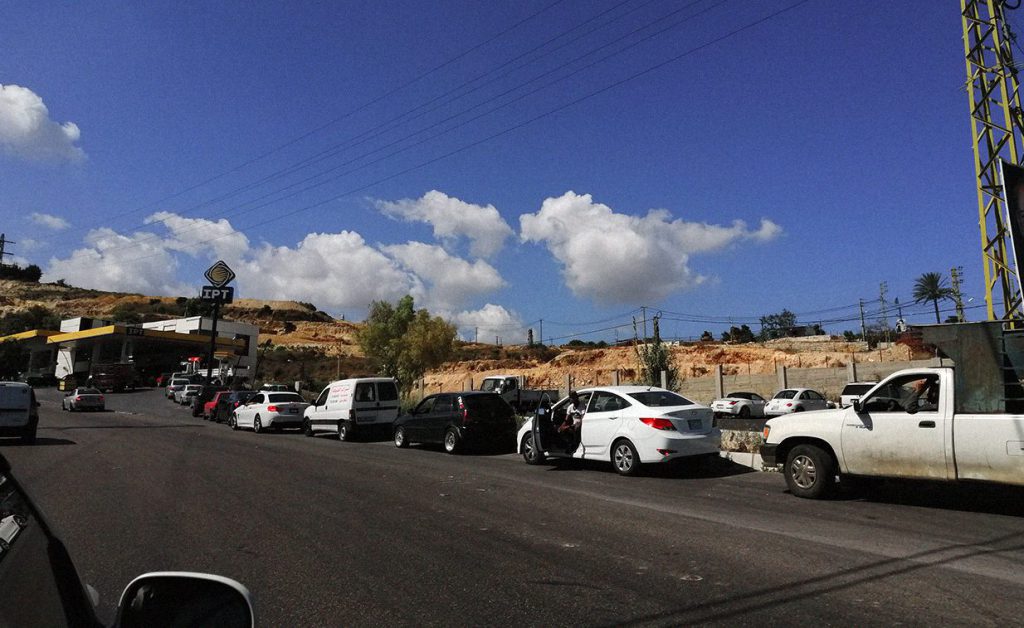Three people died as the result of two separate fights that broke out in northern Lebanon over fuel scarcity, with shortages sparking new waves of confrontations at gas stations.
On Monday, a man was in the northern Lebanese village of Bakhoun, after a fight broke out when a motorist attempted to cut a long queue, a security source told Agence France Presse (AFP).
The man later on succumbed to his wounds at the hospital he was taken to, and the killer handed himself to the army as per the National News Agency’s (NNA) report.
Just a few days before, in Tripoli, a fight broke out between motorists at a gas station over fuel purchases. In retaliation, two young men involved in the fight were targeted by live ammunition and a hand grenade early Friday morning, killing them.
Their families mourned their deaths and hosted their funerals in Tripoli on Friday. The killers remain on the loose.
In the past few months, the fuel crisis has bred a culture of long queues at gas stations and frequent scuffles, many of which have been armed. Lebanon is in the midst of grappling with its worst economic and financial crisis in recent history, classified by the World Bank as one of the planet’s top-three worst since the mid-19th century.
Fuel importers are one segment of the population that has been heavily hit by the crisis. The fuel crisis is largely blamed on the central bank, which has failed to open credit lines to fund imports, resulting in severely rationed supplies of fuel despite recent price increases in June.
The central bank is currently running on its emergency currency reserves, as it has run out of foreign currencies to fund subsidies or medicinal imports.
In contrast, Lebanese officials have largely blamed the crisis on smuggling fuel to Syria, as Lebanese fuel remains much cheaper than Syrian fuel. Some even blame distributors, who have stockpiled the fuel to sell at higher prices.
As of this morning, long queues have once again formed around gas stations across the capital and in other parts of the country, such as Saida and Tripoli. Over the past two weeks, queues had slightly eased.
